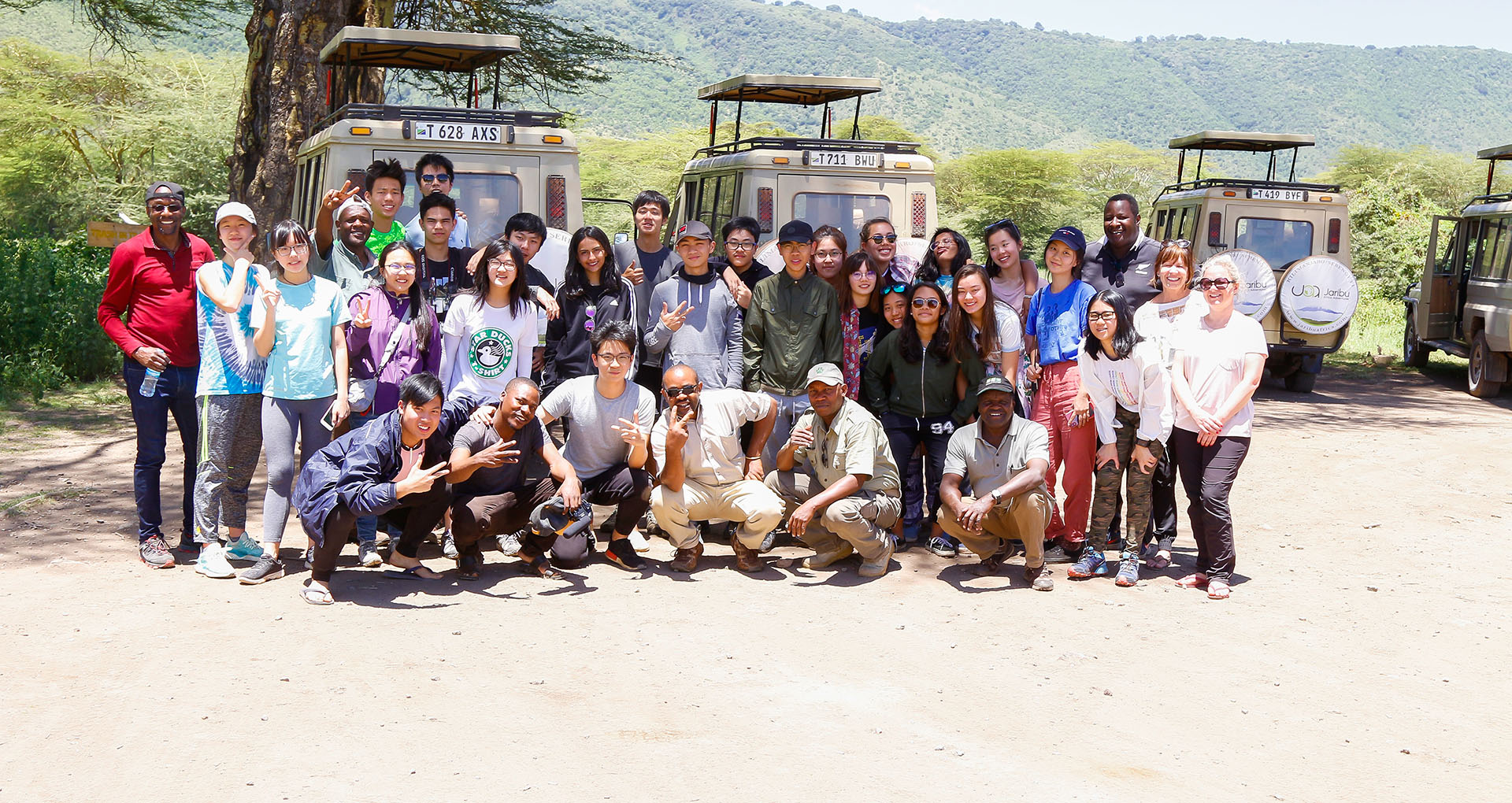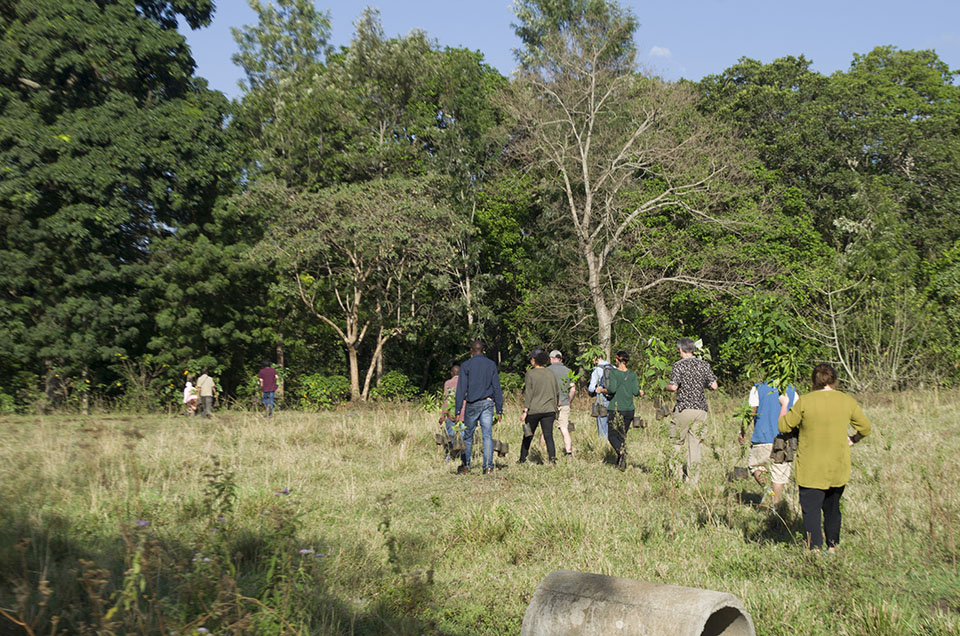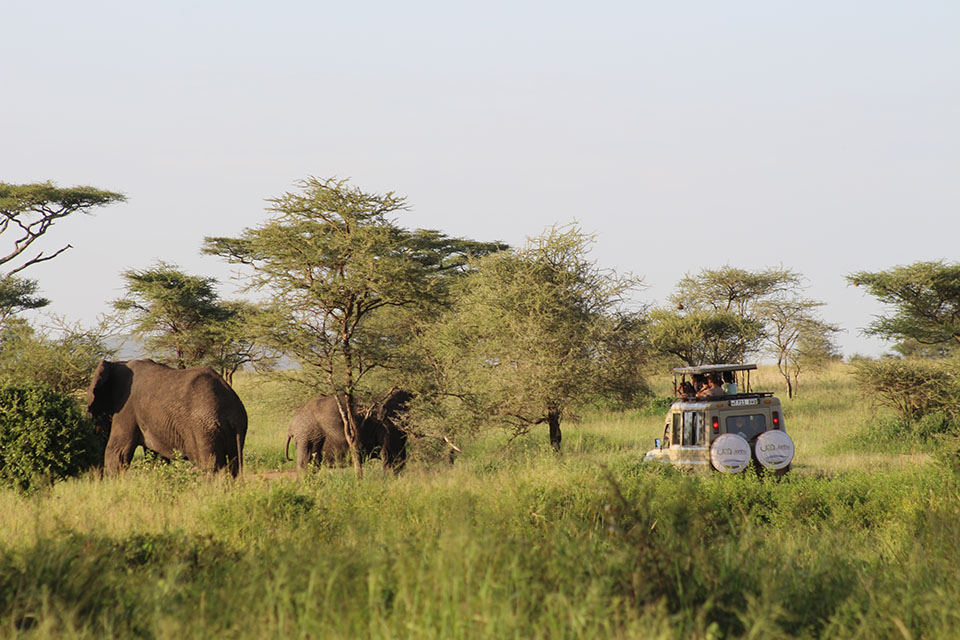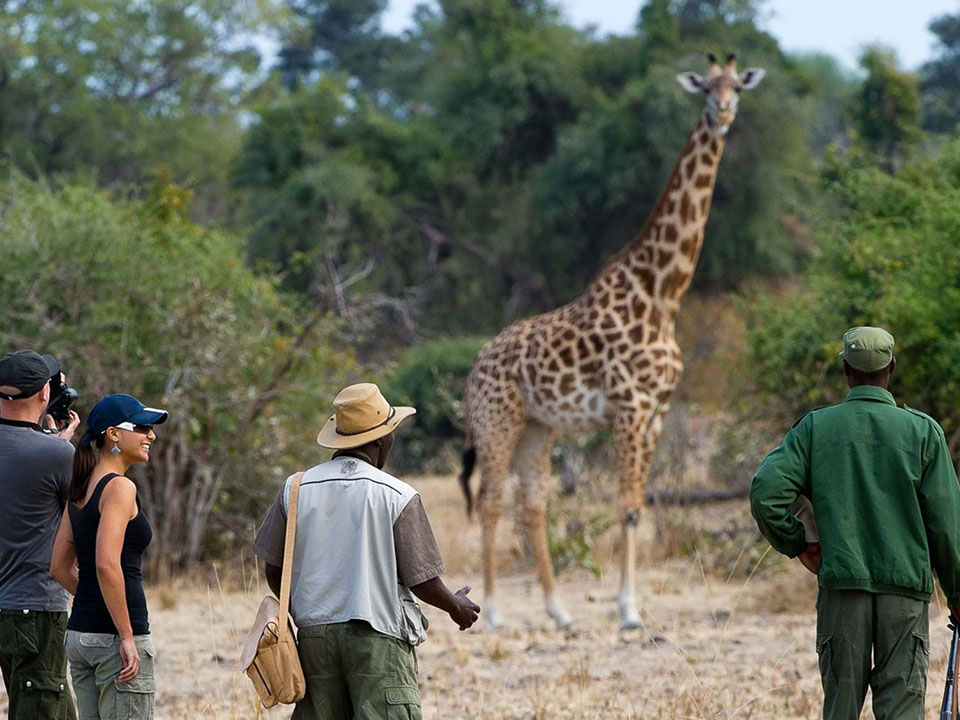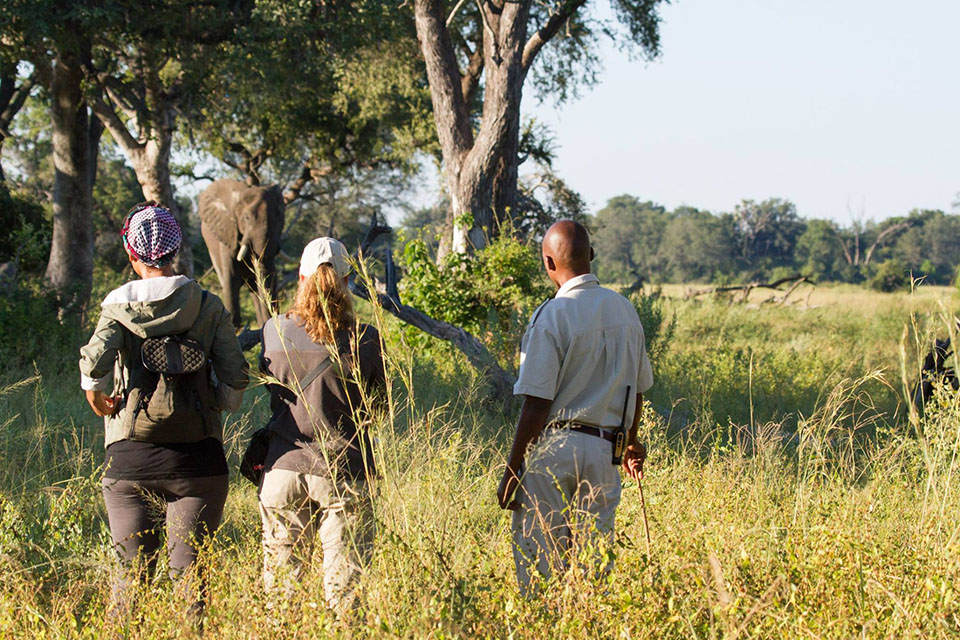Overview
This is the perfect itinerary as you will have a mixture of walking safari and game drives.
Trip Highlights
- Day 1: Arrive in Tanzania
- Day 2: Arusha National park
- Day 3: Tarangire National Park
- Day 4: Tarangire National park - Mto wa Mbu - Karatu
- Day 5: Karatu - Lake Eyasi - Karatu
- Day 6: Karatu - Serengeti National park
- Day 7: Serengeti National park
- Day 8: Serengeti National Park - Ngorongoro
- Day 9: Ngorongoro Crater - Arusha
- Day 10: Depart or Fligh to Zanzibar
Itinerary
During the wet season the wildlife is more scattered but you are still almost guaranteed sightings of Tarangire’s extensive elephant population. Large herds roam the riverbed whilst zebra, buffalo, gazelle and wildebeest try to avoid the predatory advances of lion and leopard.
There is also a remarkable profusion of bird life as the Tarangire swamps are home to 550 bird varieties including many rare species. Dinner and overnight at Marambioi Tended Lodge.
Meet the Datoga at their village. The Datoga are terrified of the Masai. The Masai are their biggest enemy. They are cattle herders as well. There was war between the Masai and Datoga for many many years ago in Ngorongoro. The Datoga chief was killed and buried near Fig Tree Camp on the Crater floor.
Proceed with walking/Hiking Visit the Hadzabe caves, where they sometimes spend their nights while hunting. They hunt with bow and arrows. Hadzabe are the nearest relatives to the Bushmen of Kalahari Desert. Visit their place where they find the plant that they boil to produce their poison, which they use for hunting. This plant can be found all over the Lake Eyasi area.
During walking and driving we might be lucky to see game as well such as lesser kudu and dik-dik. Otherwise there are plenty of birds. Dinner and overnight at Ngorongoro Farmhouse.
The Serengeti National park, which derives its name from the Masai for “endless plain”, is the jewel of Tanzania’s protected areas and lies on a vast plateau between the Eastern arm of the Rift Valley and the huge expanse of Lake Victoria. Tanzania’s oldest and most popular National park and a World Heritage site, the Serengeti is best known for the annual migration of hundreds and thousands of wildebeest, zebra and Thomson’s gazelle. Spectacular game viewing—of buffalo, elephant, giraffe, topi, impala, Grant’s gazelle, lion and leopard is a highlight.
Be inspired by the “amazing Acacia trees” dotted throughout the Serengeti, where visitors are treated with some of the most mesmerizing sunsets in the world. Our small safari vehicles minimize drive times and improve your chances of snapping that perfect shot of one of the elusive ‘Big 5′. All meals and overnight at Serengeti Tortilis Tented Camp.
There is an excellent museum; it is very small but informative and well worth the stop. Also stop en-route to visit a local Masai boma and meet some of the people who live there, Dinner and overnight at Ngorongoro Serena Safari Lodge.
After breakfast you will descend 2000feet to the Crater floor for game viewing. You will have a chance to explore the Ngorongoro Crater, an ancient volcanic crater that is home to an extraordinary concentration of wildlife including a very dense population of lions and spotted hyenas. You are almost guaranteed to see all of the ‘big five’ (lion, rhino, leopard, elephant and buffalo) as well as a great variety of other species; The views are superb, from the first glimpse of the crater at ‘Heroes’ Point’, through the thick rain forest that covers its sides, down to the rich grassy plains that form its centre.
The combination of natural scenery and wildlife is truly breath-taking. During the game drive you will stop for a delicious picnic on the crater floor. Late in the afternoon drive back to Arusha.
Dinner and overnight at Planet Lodge H/B.
Includes/Excludes
The Trip Cost Includes
- Accommodation in the accommodations specified above
- All entrance fees and excursions as per the itinerary
- Meals as outlined in the itinerary
- Arrival and departure transfers
- 24 hour emergency assistance locally and internationally
- Private Transport in a 4WD Toyota Land-cruiser with a pop up roof
- Local flight from Arusha to Zanzibar to Arusha
- Park Fees
- Game Drives
- Services of professional English speaking driver/guide
- Services of professional English speaking driver/guide
- 01 Liter mineral water per person per day while on Safari
- All camping equipment’s if using public campsite while on safari
The Trip Cost Excludes
- International flights
- Entrance fees or excursions to any additional sights and any arrangements in Zanzibar
- Tips (advice will be given on who you should tip and how much)
- Drinks
- Personal expenses
- Laundry, phone calls or other items of a personal nature
- Travel Insurance (which is mandatory)
- Early or late check in at hotels
- Government rises in park fees and taxes
- In Zanzibar there are some excursions where the clients can add on with extra cost if the clients will be willing to do
FAQs
You should consult your doctor about what vaccinations are required for travel to the region and check whether they recommend the use of malarial prophylactics. Please note that a yellow fever certificate is required by the authorities in Tanzania if your international flight has routed through Kenya, Ethiopia, Dubai and a number of other countries. Please check this with us so that we can provide advice depending on your airline.
Tipping is very much an integral part of tourism in Tanzania and wages are generally low and are then supplemented by tips. The following guidelines should help you to work out how much to tip, but you should remember that tipping is discretionary and it is up to you whether you tip or not. If you have not received a good service, you do not need to tip whereas if the service has been particularly good, you might want to give more than we suggest.
We have quoted amounts in GBP but it is generally best to tip in either local currency or US dollars.
Concierges – $2-$3 when checking in and checking out
Drivers / Guides – approximately $30 – $35 per day
Housekeeping staff – $2-$5 per day (there will often be a tip box in the hotel reception where you can leave a tip that will be distributed amongst the hotel staff)
Waiters – Most meals are included so you will not be given a bill. However, if purchasing drinks from the bar it would be customary to leave a tip of around 10%
Transport
You will be provided with a custom-made safari vehicle, with an English-speaking driver, throughout your tour.
Your tour includes drinking water whilst out on safari. Additional water and drinks can be purchased at your hotels.
Tanzania is generally a very safe country to travel in. There is petty theft in the major cities (and in Zanzibar) but this is usually targeted either at tourists who are clearly displaying their wealth (with a bulging wallet, expensive camera / watch / jewelry) or who are walking home late at night. If you follow basic precautions and use your common sense, you are very unlikely to have a problem.
There are also some basic rules that you should follow when on safari. Some of these may sound extremely obvious but you would be surprised at some of the stories we hear of other guests so we prefer to err on the side of caution!
Never ever get out of your vehicle when on safari. Even if the vehicle breaks down and you are desperate for the toilet you must remain in the vehicle. Many animals are remarkably camouflaged and you may not see them nearby. Whilst in the jeep you are safe as they just see this as a big target; the moment you get out of the vehicle you may suddenly be seen as prey. All vehicles are counted in and out of the park so if you do break down, the park rangers will soon find you.
If you do need the toilet when on a safari drive, please try to give the driver as much notice as possible. They will find a big open area where they are happy that it is safe for you to stop. Unfortunately, you will usually not be given a bush to hide behind as you never know what else may be behind that bush! The drivers will be respectful and look the other way (or ‘check the tire pressure which is the local euphemism for a pee stop!).
Don’t wave anything outside the car or stick your arms out. This can be seen as a sign of aggression and in extreme cases, could cause an elephant to charge the vehicle.
Always follow the instructions of your guide, no matter how strange they may seem. This is particularly important when on a walking or canoeing safari but applies at any time.
If staying in a tented camp, never leave your tent once it is dark without asking for one of the rangers who will be patrolling the property to accompany you. If you are traveling with younger children, you should ensure that one adult is in the tent with them.
Always wear shoes and socks when walking around the bush (rather than flip flops). This provides a level of protection against biting insects, snakes and scorpions.
You should always ask permission before taking anyone’s photograph. Many of the people in places that receive a steady stream of travelers are used to having their pictures taken and some may ask for money. You can usually tell the people who will ask for money, as they pose for pictures as their “job” and will be standing around looking for tourists, asking if you want to photograph them.
We recommend booking your trip as soon as possible. Lodges and tented camps on safari are booked quickly, so we need to reserve those before they fill up.
Yes, just let us know what’s in your mind and we will put all together for you!
Lodges and tented camps serve breakfast and dinner, typically buffet-style. Lunches are often a box lunch eaten while on your game drive.
We use 4 or 6 passenger 4-wheel-drive Land Cruisers, all with viewing roofs for the safaris. The vehicles have an inverter for charging batteries, a radio, and a cooler.
They are licensed, trained, friendly, and have years of experience!
Bottled water is included in the safari vehicle. You can also buy any drinks along your way to the safari. There will be mini-markets in town.
This is your safari trip, your adventure! You decide how you want to spend your time on this vacation. If you would like to spend a full day on safari, you are definitely welcomed to do so. Safari Infinity does not restrict your mileage, fuel or how much time you want to be on safari. While some days you may decide set out by sunrise, other days you can have a slower paced breakfast before start your daily exploration. Simply sit down with your guide to plan your day and meals the night before. Your guide will have plenty of suggestions, but of course the decision is yours.
If you have any allergies or special dietary requirements, please let us know beforehand at the time of booking, so we can advise the lodgings accordingly. Most places will be able to accommodate to your preferred meal options, though sometimes vegetarian/vegan options may be a bit limited and repetitive. If you require any special health supplement, please kindly bring it with you.
All park fees and conservation fees have a 24 hours limit. We plan your itinerary according to the park permits paid. Your safari driver guide will brief you the night before and provide suggestions regarding your schedule. Please note that any penalty fee resulting from the client’s wish to extend their stay will be at the guest’s expense.
Safaris are casual vacations! Dress comfortably and pack lightly. As you will be spending most of your safari viewing in the vehicle, loose-fitting and light colored clothing are recommended. Avoid dark colors (i.e. black, dark blue) as they tend to attract unwanted attention from insects such as the tsetse fly.
SAFARI CLOTHING
- One pair of comfortable walking shoes (i.e. sneakers, hiking shoes)
- One pair of sandals or flip-flops
- Casual, loose-fitting clothing
- Swimsuit
- One warm fleece or sweater
- Extra Cotton socks and underwear
- Hat
- Lightweight jacket or windbreaker
Other items
- Passport, plane tickets
- S. Dollars (both large and small denominations) and credit cards
- Sunglasses
- Contact Lens Solution, extra contact lenses and spare glasses.
- If you wear contact lenses, be sure to bring a pair of glasses in case of eye irritation from the dust
- Sunscreen (SPF 50 or higher)
- Lip balm (SPF 45)
- Insect repellant (DEET 30%)
- Anti-bacterial hand sanitizer
- Camera and extra batteries
- UK plug adapter
- Journal for recording daily observations and encounters
- Yellow Fever Vaccination Certificate, if applicable
- Small Personal Medical Kit including aspirin, anti-malarial pills, cold and allergy medicine, cream of itches (i.e. Benadyl itch relif), stomachache mecidine (i.e. Pepto-Bismal), antibiotic ointment (i.e. Neosporin), prescription antibiotic effective against a broad range of bacteria including travelers diarrhea (i.e. Ciprofloxacin or also known as Cipro)
For all of our guests, we have included an Emergency Evacuation Services with AMREF’s Flying Doctors. This will cover the guests in case they require immediate evacuation from where they are to the hospital (usually in Nairobi).
If you are feeling ill, but not having any serious symptoms or injuries, there are nearby hospitals and clinics (in Karatu and Serengeti) for the driver to take you to.
When it comes to tipping at the safari lodges, camps and hotels in town, our recommended tipping guideline is as follows:
- -1 to 2 USD (or equivalent of 1,500 to 3,000TSH) for the porters, who will be helping you with your luggage upon arrival at the tented camps & lodges
- -10 to 20 USD (or equivalent or 15,000 to 30,000TSH) for each night stay.
- Typically the safari accommodation will have a General Tipping Box ath the reception desk, where you can leave your tip at the end of your stay.
Summer: September to April. Temperature: 20°C to 30°C.
Winter: May to August. Temperature: 19°C to 25°C.
Rainfall: April-May (long rains) and November to mid-December (short rains).
Swahili is the national language of Tanzania, but many tribal languages are spoken amongst the 120+ ethnic communities in Tanzania. English is considered the de facto official language. It is widely spoken by those who work in tourism and hospitality.
The standard voltage throughout Tanzania is 220-240V, 50Hz. The primary socket type is the “Type G” grounded 3-prong British BS-1363. Most camps and lodges have outlets available for charging cameras and mobile phones. Our safari vehicles are also equipped with electrical outlets. SIM cards can be easily purchased for mobile phones and internet usage. Many camps and lodges also have wireless connectivity available at an additional cost.
Yellow Fever inoculation is mandatory for visitors transiting through Central and East Africa (e.g. Kenya) and coming from People’s Republic of China or certain endemic countries in South America. Otherwise, there is no mandatory inoculation required to enter the country. Precautions for malaria are always recommended. Please consult a travel clinic physician for additional recommendations.
The Tanzanian Shilling is the currency of Tanzania. The exchange rate is roughly 1 USD = 1600 TZS. Credit cards are not widely accepted. However, USD is accepted in most places visited by tourists. Please note that US bills printed before 2003 are not accepted in Tanzania, as there was a large amount of illegal processing of dollar bills in the country.
A valid visa is required for travel to Tanzania. A passport with a minimum validity of 6 months prior to expiry is required.
A single-entry visa is valid for 3 months from the date of issue. Visas-on-arrival are available at Kilimanjaro International Airport (JRO)for US$50. (For U.S. Citizens, the cost is US$100 for a multiple entry visa.) However, it is advised that visitors traveling from a country where visa services are available should obtain a visa prior to arrival in order to avoid potential delays at the airport.
Jaribu Africa Adventures will pick you up and transfer you to designation Hotels. Pick up on arriving airport and drop off is included on our package. We arrange also other group transport if required.
Pack packs with without flames is better and suitcases. Those luggage may be packed on back or in the roof rack of safari 20 Kg ( 44 Lbs) are maximum weight.
In the case of an emergency within Tanzania or Kenya , please contact contacted directly on my mobile + 255 714277047/+255 753909004 is 24/7 hours reachable
| Number of Travelers in Group Discount | Cost Per Traveler in US($) |
|---|---|
| 1 Person | 6,600 |
| 2 People | 4,976 |
| 3 People | 4,435 |
| 4 People | 4,200 |
| 5 People | 4,050 |
| 6 People | 3,900 |
| 7 + People | 3,850 |
| Single Room Supplement | 496 |

